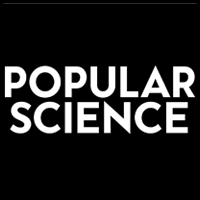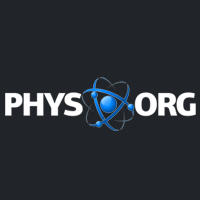Media Watch
Climate change imperils San Diego County’s coastal rail corridor, panelists say
The San Diego Union-Tribune -
Climate change is “wreaking havoc” on the coastal rail corridor from Santa Barbara to San Diego, Sen. Catherine Blakespear said Monday at a Senate Transportation Subcommittee meeting in San Clemente. … “We can’t shut down this corridor,” said Sarah Catz, a researcher at the University of California, Irvine’s Institute of Transportation Studies. “It’s just way too important. It’s critical that we keep ... freight alive, and that we keep passenger service alive.” Read More
Challenges facing key rail line’s future discussed in San Clemente
The Orange County Register -
Ted Link-Oberstar, transportation and housing consultant for the Senate Office of Research …. suggested the state consider an expanded, more formal role to take the lead. Sarah L. Catz, a researcher for the Institute of Transportation Studies at UC Irvine, echoed those thoughts during the hearing, saying a state-led study and oversight is needed so there is a singular point off contact that can coordinate with federal agencies. Read More
San Clemente’s mega sand project gets start date
The Orange County Register -
UC Irvine civil and environmental engineering professor Brett Sanders, whose team is tracking the results of a smaller-scale sand project recently completed further north at Capistrano and Doheny State beaches, said the San Clemente project and a similar replenishment effort that just launched at Surfside-Sunset Beach north of Huntington Beach bring a lot of benefit for the region. … “We know that beaches drive tourism and recreation – the economic activities that produce state and federal taxes and fill the coffers of coastal cities, [Sanders said]. Read More
These 10 scientists are on the cusp of changing the world
Popular Science -
Quinton Smith: Assistant Professor of Chemical and Biomolecular Engineering; University of California, Irvine. … Researchers have spent decades laying the foundations for today’s organoid experiments. … Smith’s lab at the University of California, Irvine, which was founded in 2021, is one of many around the globe tinkering with these organ models. But his team stands apart with a game-changing new technique, growing tissue from stem cells to mimic our organs and how they interact with drugs. Read More
What causes fire embers to spread more quickly
ABC News -
Researchers at the University of California, Irvine who study the behavior of fire embers have determined the majority of fire damage in major wildfires comes from embers that have the ability to move far away from the actual burn site. They also have studied how strong wind gusts can send even large embers flying long distances where they can land and create new spot fires. "We are trying to understand under what conditions the embers are lofted away from the fire," Tirtha Banerjee, associate professor of civil and environmental engineering at UC Irvine, told ABC News. "So, how fast do they emerge? How many of these embers can emerge and how far they can really land?" Watch More
Tips for making your home more fire-resilient
ABC News -
We’ve really come to the experts. … They’ve been working for years on how to predict but also how to prepare for wildfires. … So let’s start with what they are studying. We hooked up with UC Irvine’s Tirtha Banerjee and his whole group who’s been doing these field studies while they look at how wildfires spread. They learned a couple of years ago, that the embers can go miles ahead of the fronts of fires but now they are studying in the field, for the first time, how each of those embers are shaped, their velocities, how they act and this will help predict where fires will go in the future. It will be invaluable research that will then be put into a lot the modeling. Watch More
UC Irvine receives $5 million for diversity in STEM fields
Philanthropy News Digest -
The University of California, Irvine (UCI) has announced a $5 million gift from UCI Foundation trustee Stacey Nicholas to support diversity in STEM (science, technology, engineering, and math) fields. The gift to the Henry Samueli School of Engineering will endow and rename the Stacey Nicholas Office of Outreach, Access, and Inclusion, a campus program that supports the recruitment, retention, and graduation of students to advance diversity, equity, and inclusion in STEM fields. In addition, the gift will create the Women and Engineering Program, which will provide leadership training, mentorship, and professional development to promote the success and advancement of women in engineering. Read More
Researchers uncover battery-like functions of mitochondria using super-resolution microscopes
Phys.org -
Using new super-resolution microscopes, researchers at the University of California, Irvine and the University of Pennsylvania have for the first time observed electrical charge and discharge functions inside mitochondria isolated from cells. … "When we first started studying isolated mitochondria, we knew they behaved like a battery …." said co-author Peter Burke, UCI professor of electrical engineering and computer science. "Now we can control each individual electrical component and cause it to charge and discharge." Read More
Electric vehicle owners in Phoenix can rent out their charging stations on new Buzze app
KJZZ -
Analysts cite a number of factors for consumer’s hesitancy to buy an EV — price is often a big one. But so too can be the infrastructure needed to charge an EV, and how available chargers are. A local start-up, called Buzze, is looking to help in that area. Owners of EV chargers can essentially rent them out to EV drivers who are looking for a place to plug in. It’s a mobile app …. To talk about how effective this kind of peer-to-peer platform can be is Matt Dean, an assistant professor of Civil and Environmental Engineering at University of California, Irvine, where his work looks at sustainable transportation. Read More
Breast cancer detection and safety devices: the Prototypes of Humanity shortlist
Design Week -
A team from the University of California Irvine designed The Blue Box, a device claims to be able to detect breast cancer in urine with a sensitivity of 83%, accuracy of 79% and specificity of 75%. The team also designed it to be radiation-free, pain-free, accessible, low-cost and easy-to-operate. Read More








